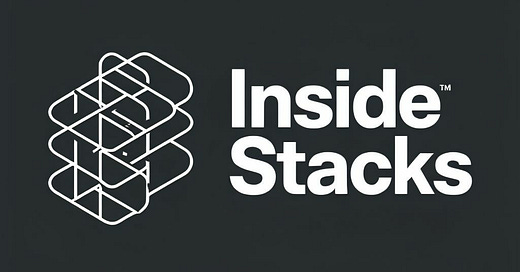Choosing Azure over other cloud platforms often boils down to some real-world perks that aren’t just marketing hype—think of it as the difference between a ‘limited-edition’ snack and one you actually want to eat. Here’s why businesses might actually *crave* Azure for their cloud journey:
1. Hybrid Capabilities
- Seamless On-Prem Integration: Azure has been a pioneer in hybrid cloud, providing smooth integration with on-premises environments. Tools like Azure Arc and Azure Stack allow for unified management across on-prem and cloud environments, making it ideal for companies with hybrid strategies or regulatory constraints. Probably the most compelling reason in my opinion.
- Edge and IoT: Azure also has robust edge computing and IoT support, extending cloud capabilities to remote locations through Azure IoT Hub and Azure Edge Zones.
2. Enterprise-Grade Support for Microsoft Ecosystem
- Microsoft Integrations: Organizations already using Windows Server, Active Directory, or SQL Server ( Who doesn’t love good old SQL Server? ) will find Azure’s integration capabilities deeply beneficial, as it offers seamless identity, data, and application management.
- Enhanced Productivity with M365: Azure’s connectivity with Microsoft 365, Dynamics 365, and Power Platform provides a cohesive ecosystem that can improve productivity, especially for businesses already invested in Microsoft’s software. Basically making you a Microsoft one stop shop, I’m not saying it’s bad but do consider the vendor locking issue if there’s any plan to expand some services at least from Azure to other CSPs.
3. Security and Compliance
- Industry-Leading Security Standards: Azure invests heavily in security, with features like Azure Sentinel (SIEM), Azure Defender (XDR), and multi-layered security mechanisms like EntraID formerly known as Azure Active Directory and Security Center. They keep showcasing this every time they get the chance, very good marketing strategy and the products are fairly good, there’s not a doubt about that. Regulatory agencies eat this stuff up.
- Compliance Portfolio: Azure has a large portfolio of compliance certifications, including GDPR, HIPAA, and FedRAMP, which is critical for industries like healthcare, finance, and government. Again, this is just an easy way to use, any sort of compliance can be custom built if you have the right type of knowledge about what’s your desired standard, but having this in your toolset from the get go really improves efficiency in deploying and maintaing it,
4. Advanced Data and AI Capabilities
- Data Services: Azure offers a wide range of managed database options (SQL, NoSQL, and Big Data) and analytics services like Azure Synapse Analytics for complex data integration and analysis.
- AI and ML Innovations: Azure’s AI services, powered by Azure Machine Learning and Cognitive Services, enable businesses to build intelligent applications without extensive AI expertise. Probably the partnership with OpenAI was one of the best moves across all deals they ever had with third party integrations and software as a service offerings. They’ve managed to stay ahead of the competition unlike anyone else.
5. Global Reach and Latency Optimization
- Expansive Datacenter Network: With over 60+ regions, Azure has one of the most extensive global networks. It includes unique regions like China, Middle East, and Africa where other cloud providers may have limited availability. They claim this themselves right here.
- Latency-Optimized Networking: Azure’s ExpressRoute offers direct, private connections to Azure, which can reduce latency and improve reliability for mission-critical applications.
6. Cost Management and Optimization Tools
- Comprehensive Pricing Models: Azure offers a wide range of pricing models, such as Reserved Instances, Spot Instances, and Azure Hybrid Benefit, which allows businesses to apply existing licenses to the cloud, reducing costs.
- Cost Management Tools: Azure Cost Management + Billing gives users robust tools to monitor and optimize cloud spending.
7. Developer and DevOps Support
- DevOps Tooling: Azure DevOps, GitHub Actions, and Azure Pipelines allow developers to implement CI/CD workflows efficiently within Azure, making it easier to build, test, and deploy applications at scale.
- Extensive Language and Framework Support: Whether you're crafting code in .NET, Java, Python, or Go, Azure's got you covered with SDKs, libraries, and docs so rich they’d make a billionaire blush. It's like a buffet for developers—grab what you need, but try not to go overboard. After all, no one wants their code to have more libraries than their city!
8. Open Source Friendliness
- Strong Open-Source Commitment: Microsoft has made considerable strides in open-source support on Azure, including offerings like Azure Kubernetes Service (AKS), managed databases for PostgreSQL and MySQL, and compatibility with Linux.
Summary
Azure stands out with its enterprise-grade hybrid solutions, deep Microsoft product integration, advanced AI, and a global footprint that’s basically everywhere except your fridge…for now. It’s like the Swiss Army knife of cloud platforms—packed with so many tools that it’s hard not to feel a little *too* prepared.
Ultimately, choosing the right cloud is like picking the perfect coffee. Sure, Azure might be a strong, full-bodied choice, ideal for those looking to future-proof and leverage their existing Microsoft investments. But as always, it’s best to go with the brew that suits your business needs. Just know that Azure’s hybrid readiness, security, and scalability make it the dark roast that most enterprises can’t resist!





M365 provisioning with customised data via Graph apis is quite seamless integration.